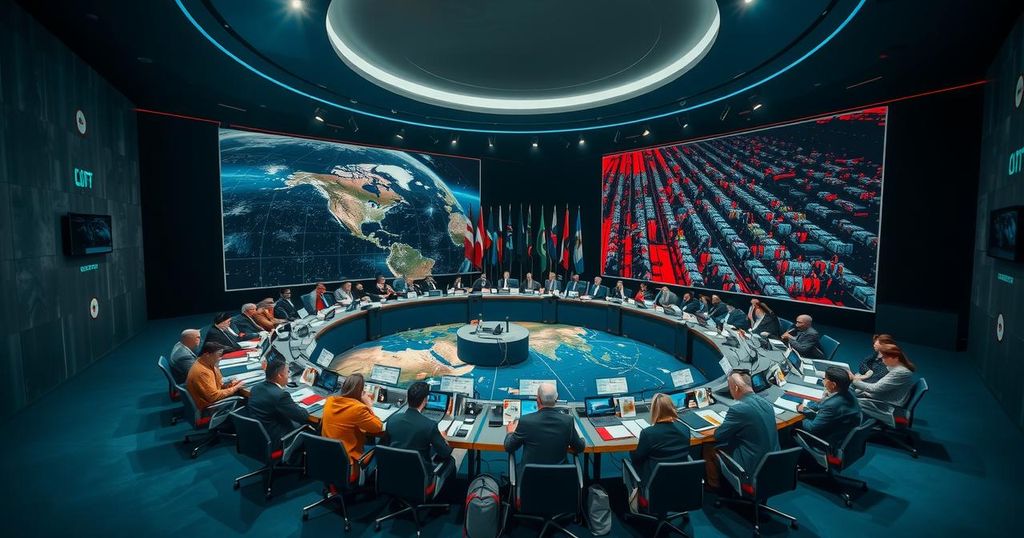COP29 Summit in Baku: Attendance of Global Leaders and Implications for Climate Action

COP29 in Baku will welcome around 100 leaders, yet fewer top officials are attending compared to previous summits. Notable representatives from the G20 include four leaders; however, significant absences, particularly from major economies like Russia and key Latin American figures, could impact discussions on climate commitments. Leaders from vulnerable nations remain prominent, underscoring the urgent need for action on climate issues.
The COP29 UN climate summit in Baku is anticipated to convene around 100 leaders and heads of state on Tuesday and Wednesday. Despite the urgency of climate issues, significantly fewer high-profile leaders are attending compared to previous summits, such as COP28 in Dubai and COP26 in Glasgow in 2021. Confirmed participants from the G20 include four prominent figures: United Kingdom’s Keir Starmer, Italy’s Giorgia Meloni, Turkey’s Recep Tayyip Erdogan, and Saudi Arabia’s Crown Prince Mohammed bin Salman. However, Russian President Vladimir Putin’s absence is notable; his Prime Minister, Mikhail Mishustin, will represent Russia instead. G20 nations account for a substantial 77 percent of global greenhouse gas emissions, yet the representation from major economies remains slim. Among the larger EU nations, only Spain’s Pedro Sanchez and Poland’s Andrzej Duda will attend. Other EU leaders from Belgium, Bulgaria, Cyprus, Croatia, Denmark, Finland, Greece, Malta, and the Czech Republic are expected, alongside European Council President Charles Michel. In contrast, Commission President Ursula von der Leyen will not participate. A significant number of leaders from vulnerable nations, specifically from Africa and the Pacific, are expected to attend, prominently featuring Kenya’s William Ruto and Bangladesh’s interim leader Muhammad Yunus. Notably, Mia Mottley, the Prime Minister of Barbados known for advocating for equitable climate finance reform, is scheduled to speak. However, Latin America is underrepresented, with key figures including Brazil’s President Luiz Inacio Lula da Silva and Colombia’s Gustavo Petro absent. Vice President Geraldo Alckmin will instead represent Brazil, which is set to host COP30 next year in Belem.
The COP29 climate talks are occurring amidst growing concerns about climate change and its impact on global temperatures. The conference serves as a platform for world leaders to discuss and negotiate measures to combat climate change. This year’s event highlights a concerning trend of diminishing attendance from high-profile leaders, raising questions about the commitment of major economies to address urgent environmental issues. Despite a strong presence from representatives of developing nations directly affected by climate change, the absence of significant leaders from G20 countries, which hold a majority share of global emissions, underscores the complexities of international climate negotiations.
In conclusion, COP29 is set to gather a variety of leaders, albeit with significantly fewer high-profile attendees compared to previous climate summits. The involvement of developing countries remains robust, emphasizing the critical stakes for nations most vulnerable to climate impacts. However, the limited presence of notable leaders from leading economies prompts concern regarding global commitment to addressing climate challenges effectively.
Original Source: www.barrons.com








